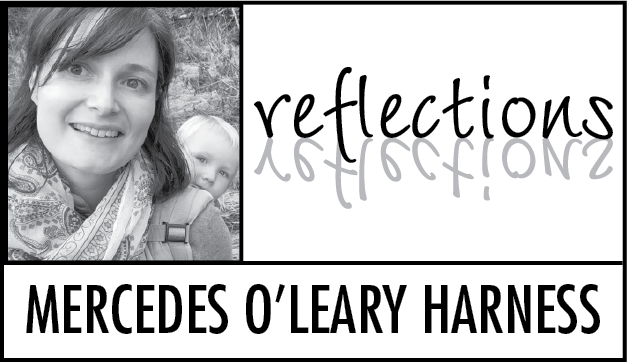Some things don’t turn out the way we expect. My Dad, Tim O’Leary, should be writing this letter right now, not me.
But if I am to be truthful with myself, I had a sense of the knife’s edge. I walked through town mid-March marveling at the early buds on all the trees, and thought of my Dad. Thought how prescient and foreboding and beautiful those early leaves were. And I knew in some deep and sacred place that my father was not to be long with this world. I was walking to his house. He wouldn’t answer his phone and I was worried about him. I knocked; he answered and my subtle stirrings dissipated — but never fully left.
When I get out of here, I’m going to write about this. In fact, bring me my computer and I’ll get started now.
My father was taken to the hospital in acute pain one wicked evening in late April. It took him four hours of struggling down the stairs of his home to get to his phone to call an ambulance. He already had a severe case of spinal stenosis, but the cause of his new pain was discitis, an infection in his lower vertebrate.
My father, whom people admired walking up and down East Hill, could not even sit up in bed. But as the pain medications and intravenous antibiotics kicked in, we found ourselves walking the hospital hallway. His best day, also his last day, we talked for hours about friends, family, memories and, of course, politics. He let me finish his lunch, and wanted to make sure I had a comfortable place to eat it. Now you’re taking care of me, I teased him.
I think my Dad wanted to eventually write about his deliverance from pain. Or about how pain had become the new lens through which he viewed the world. He marveled at the assistance that had become necessary to perform the most rudimentary of bodily functions. My Dad shined gratitude on to the nurses and CNAs helping him — and to me he would reflect how much he preferred being cared for locally over a large hospital.
My Dad, always ready for good conversation, appreciated how the hospital staff engaged him. We both fretted over his quandary — the road to wellness was both very hopeful and exceedingly long. My Dad’s situation was not easy to diagnose, and I watched as the doctors monitored, tested, and unturned every rock they could find. He had an echocardiogram a few days before his death, and the results were fine. No one could have predicted his heart would suddenly stop.
I would like to return to my Dad these words he wrote for his friend Charlie Davis:
… I can’t help but wonder what’s there to be said about being gratefully dead? May you, my friend, be immersed in it; I know the last couple of months made for a hard passage. What a noble, hard scrabble story, right to the end, you led. What a stout and stoic heart you possessed.
I would add, of course, passion. I know of no other person who loved life, including this country and our town, as fervently as my Dad.
And upon the loss of Sue Gibson he wrote:
Anyway, my generation is entering the fall of life. As far as I’m concerned, anyone over 60 is getting to be a short-timer. We’ll all be, in whatever way it comes down, there with you, Sue, soon enough. There’s no escape. We are all mortal-morsels.
Saturday, April 30, in the small hospital where I was born and first was held by my proud father, the same hospital in which I brought forth his two cherished grandchildren, I said good-bye, most unwilling, to my Dad. Tim O’Leary was indeed delivered from his pain, and was safely onto the next great mystery, “gratefully dead” as he would have called it. I remain gratefully alive. I can feel him pushing me back to the land of the living, to the sacred duty of raising his granddaughters.
In the close of his letter for Sue Gibson he wrote:
Anyway, sometimes how I wish I could play a trumpet — that some night I could stand atop Ohlson Mountain and wail away into the stars.
Me too, Dad. Me, too.
Signing-off for Tim O’Leary, his dutiful and loving daughter, Mercedes O’Leary Harness.



